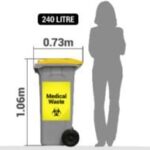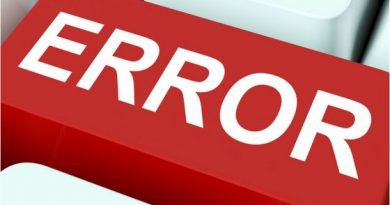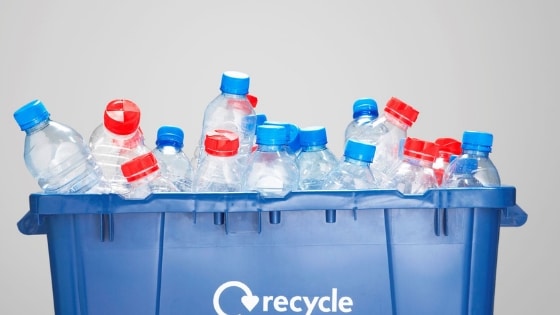Book Disposal Recycling 📚
Energy Disrupter
Book Disposal Recycling 📚: Even with all of the fancy technologies suddenly popping out here and there, books are always ever-present in our lives. Reading books is essential for everyone to develop their minds. As they always say, “The pen is mightier than the sword”. The saying basically emphasises the importance of reading and writing books above unnecessary actions. It is basically a no-brainer to think that books are an important aspect of a human’s life. But what if you accumulate too many books on your shelves? What can we do with them?
Let me discuss with you the ways you can act upon your books’ disposal and recycling.
>Download Now: Free PDF Business Owners Guide To Cardboard Recycling Bin Services
A bit about Waster
Before we discuss the topic of book disposal recycling, let me share with you more information about Waster.
We here at Waster provide you with innovative solutions for your and your business’s waste management and recycling needs. Furthermore, we provide flexible, 30-day contracts instead of the typical lock-in contracts, which proves to be better.
Click on the blue button to learn more.
READ: Toner Cartridge Recycling 🖨️
The proper disposal and recycling of books
You might ask yourself, “Can I put books in the recycling bin?” The answer is yes, but here’s the catch: recycling books is quite tricky. Books are made of paper, stacked and bound together, protected by a cover, and held by a strong adhesive. As a result, some recyclers simply do not accept them because they have a hard time trying to recycle books. You also have to factor in that some books come with a plastic cover to protect the book. So, it is best not to throw your old books into the recycling bin if you’re unsure.
But according to Earth911, it is very much recyclable – binders included. They fall under the category of mixed paper. Remember to remove the cover before recycling it, because it is not made of paper; it is made of something entirely different. If you want to recycle old books, you just have to make sure that the pages have not turned tan or brown. You should throw them in the general waste bin if that happens. Additionally, the same goes for books that were splashed with liquids; it is best to throw them away with your household trash, instead.
What I could suggest is to first contact your local council for further direction. Generally, some recyclers may accept your books if you follow some of their guidelines such as removing their binders, covers, or any other materials present there. Basically, you only leave behind the paper before putting them in the recycling bin. So no more asking “Can you put hardcover books in recycling?”, “Can old books be recycled?” or the like!


Other things you can do to get rid of your books
If your local council does not present you with proper disposal and recycling methods for your books, you can opt to do the following options, instead:
Sell them
If your books are in good, tip-top condition, try to market them either in person or online. Maybe you have a local bookstore around your area, so why not try selling it there? You can search for places online and drop them off there. One example is Berkelouw. They are a firm specialising in buying and selling books. Or you could sell them online. Put them for sale on Amazon or eBay.
Donate them
If you wish to help others and the environment; free yourself some space in your house, all at the same time, then you can donate the books to your local library, school, shelters, and other nonprofit organisations. There are other good ways instead of finding your own books disposal and recycling. This right here is a perfect example. Not only do you help the environment and the people, but you also help declutter your own homes.
One example where you can donate books is through Street Library. If you’d like to donate your books to them, find your closest dropoff point.
Leave a “Free Books” box where plenty of people usually go
This idea was first thought of by Wendy Gabriel. She wrote for Recycle Nation and had this to say, “Find a location where people wait like a doctor’s office waiting room, train station, bus stop and so on. Place a book labelled “Free Books” in that location, as always, first check with the staff to get permission before bringing your books in. You could even place a box in your lunchroom at work or school”.
Swap them with other books of your liking (if you wish to read new books and got bored with your old ones)
Maybe you are a so-called bookworm like me who likes to read new books but is financially limited; fortunately, there is something you could do with this. You can try to swap your old, read books with other books that pique your interest. Maybe you have a friend who has not read the last Percy Jackson and the Olympians book which you happened to have, while he has that Diary of a Wimpy Kid you’ve long been looking for. You should trade with that particular friend, instead!
Book disposal recycling: conclusion
Recycling books is very much possible. You just have to follow the guidelines stated by the recyclers before you put them in the recycling bin. But, if possible, we should instead reuse or repurpose them to save on natural resources and cut down our carbon footprint. You could opt to sell or donate them, depending on your preference.
If you wish to read another Waster blog, I suggest you read our blog on infectious waste disposal.
Waster: things you need to know
If you’re looking for recycling bins, check our waste recycling shop and find the best deals in terms of pricing and services. Check our medical waste disposal for more information.
Also, please call 1300 WASTER (1300 927 837), or email us at [email protected] if you have any further questions.
















